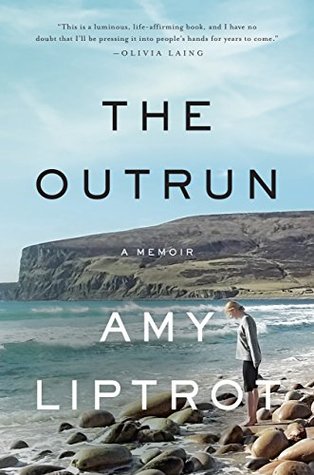More on this book
Community
Kindle Notes & Highlights
I HEARD IT SAID THAT IN London you’re always looking for either a job, a house or a lover.
In Orcadian, ‘flitting’ means ‘moving house’. I can hear it spoken with a tinge of disapproval or pity: the air-headed English couple who couldn’t settle, the family who had to ‘do a flit’ quickly due to money problems. In London I was always flitting but was too battered to see it as an opportunity. I wanted to flit quickly so that no one noticed, slipping from one shadow to the next.
I was in a dangerous loop, now consciously drinking to ease the shame of what I’d done while drinking the night before.
That evening I chose alcohol over friends and had crossed a line. After this, I crossed lines quicker and quicker, choosing to drink despite warnings from work, doctors, family and the law.
But I was learning that the thing with cravings is that they pass: I sat through it and an hour later wondered what it had been about.
I felt lucky to have indulged in treatment and to have met all those loopy and unpredictable people. Working with people who could barely read and write, but who often expressed themselves with eloquence that hurt my heart, made my concerns over things like grammar seem petty and obscure.
There are many things I am scared may happen by surrendering myself to sobriety but near the top of the list is losing my edge. By ‘edge’ I mean my cool, by which I mean my enlivening sense of discontent, and my youth, and sex – narrowed eyes and full lips – and enjoyment of testing the boundaries, of saying something uncomfortable and an excitement in the unexpected.
I have a pee on the edge of a cliff looking out towards Norway and feel like a Viking conqueror.
I am lucky to have an excuse to stop and listen. It takes a few seconds for the car’s engine to stop running and quieten, then for my personal velocity to come to a halt, heartbeat to slow, clothes to stop rustling, for the noise in my head to fall away and the sounds of the night to reveal themselves.
On Burray, the haar comes in but the fog turns pink in the sunrise and I can hear seals, across the fields, down on the shore, howling like ghouls.
North again, on a clear day North Ronaldsay is visible, so low-lying that just the houses can be seen, disembodied and floating on the sea.
This week I’ve seen more seals than people, noses uppermost in the bay.
When you’ve spent so long messing up, covering up and apologising, it’s hard to shake the feeling that you’ve done something wrong and default to the secretive and even sneaky behaviour that addiction involves.
There are no police – the old ‘parish handcuffs’ can be seen at Holland Farm – but your movements can be watched across the treeless landscape and neighbours notice what time your curtains are open in the morning.
People here are often called by their house name rather than surname. The houses are familiar, in collective memory, and will outlive the people staying in them.
Nautical twilight ends when the sea is no longer distinguishable from the sky and ship navigation using the horizon becomes impossible.
The part of the sea before the horizon is called the offing; hence ships due to arrive soon are ‘in the offing’.
I’ve been reading about fluid dynamics and the mathematical criteria for a wave breaking, when the wave height is more than one-seventh of the wavelength.
There are different types of breaking waves – spilling, plunging, collapsing, surging – but although they collapse in different manners, there is only so much height any wave can sustain before it comes crashing down.
I’m gradually learning to say things sober that other people wait to say drunk.
A farm tom cat went missing, out chasing rabbits on the Outrun, and returned months later, twice his old size, face scarred with half his whiskers missing, walking confidently into his old home and scaring us.
As teenagers, we picked winkles from the shore and sold them by the bucket, by weight, to a local shellfish dealer, who sent them to Spain or to be used for water purification in fish farms.
One reason alcohol is addictive is that it doesn’t quite work. It’s difficult to get enough of something that almost works.


